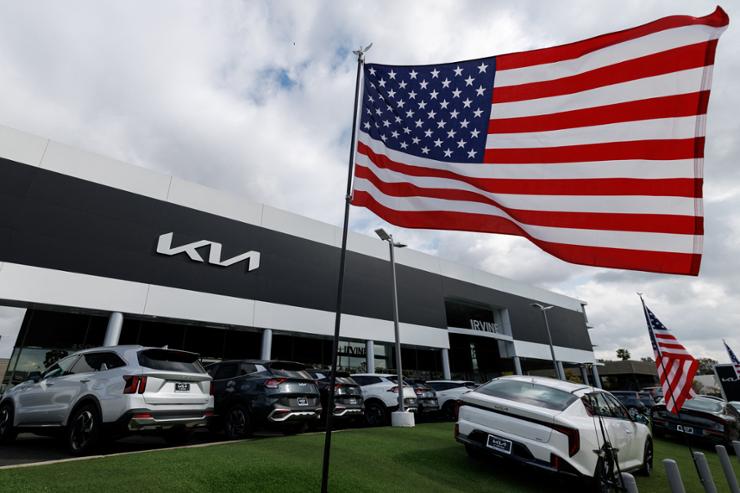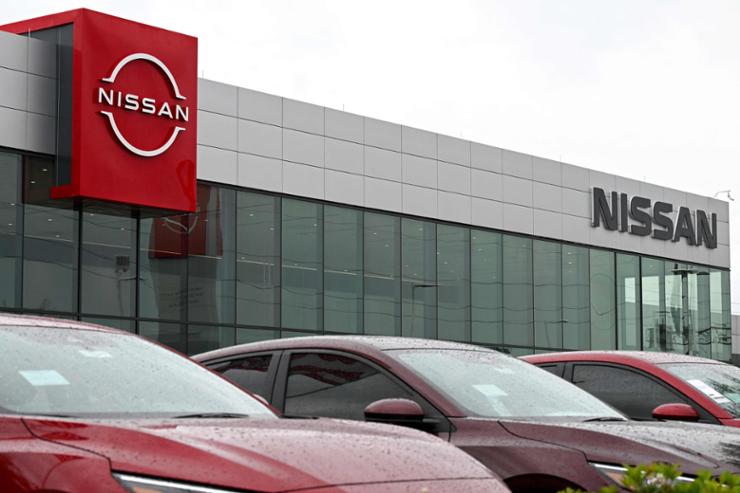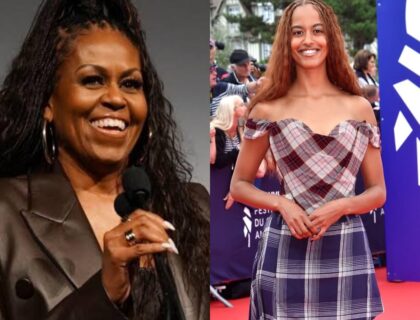US Car Buyers To Face Higher Prices And Limited Choices Under Trump’s Tariffs
Industry experts warn that while major automakers have various options to offset President Donald Trump’s tariffs on U.S. auto imports, each approach will result in higher prices, reduced model options, or fewer features for consumers. Trump announced a 25% tariff on cars and auto parts on Wednesday, which led to a drop in global automakers’ shares and sparked concerns about job losses in major auto-exporting countries. He claims the tariffs will eventually boost U.S. production, but analysts maintain that the immediate effect will be reflected in automakers’ choices, ultimately impacting consumer costs.
“Most car makers can’t eat 25 percent, they just can’t,” said Andy Palmer, former CEO of Aston Martin. “
Car makers are expected to shift as much of the tariff cost to consumers as possible—by stripping out features to lower production costs and by raising prices. Automakers might distribute these costs across both domestically produced and imported models, reduce the features offered, or even discontinue affordable models aimed at first-time buyers, many of which are imports that become less appealing with higher price tags. This could price more Americans out of the market. S&P Global Mobility estimated on Thursday that tariffs will lower annual U.S. vehicle sales from 16 million in 2024 to a range of 14.5 million to 15 million in the coming years. Cox Automotive projects that tariffs will add about $3,000 to U.S.-made vehicles and $6,000 to those made in Canada or Mexico without exemptions. Although luxury brands like Bentley or Ferrari claim they will pass on the costs, major automakers, with typical margins of 6 to 8 percent, have little room for maneuver. Affordable models such as the Honda CR-V, Chevy Trax, Subaru Forester, Chevy Equinox, and Honda HR-V are likely to be most affected, according to Erin Keating, executive analyst at Cox.
“Car makers know they have certain vehicles in their portfolio that can tolerate lower profit margins,” Keating said. “Some vehicles may just prove to be too expensive, and most of those are affordable models manufactured outside the U.S.”

Keating noted that even though the coronavirus pandemic priced out 10 percent of car buyers, affordability remains a top concern for consumers.
“Would tariffs bite into another 10 percent of people who would be priced out?” she said. “Potentially.”
U.S. auto dealers currently boast ample inventory—about a 90-day supply—but prices may start to climb once stocks diminish. Recently, Eric Mann, sales manager at the Szott M-59 Jeep dealership in White Lake, Michigan, observed an uptick in purchases driven by fears of higher prices. Meanwhile, Loretta Acosta, 55, of Macomb, Michigan, who was considering a Jeep Grand Cherokee at Szott on Thursday, warned that it “might stink” if tariffs push prices up.
“But I do feel like sometimes stuff stinks, and you got to put up with it for the betterment of the country,” Acosta said.
You may be interested

FCT Police Spokesperson SP Josephine Adeh Honoured with Best Police PRO Award at 2025 Nigerian Police Awards
gisthub - Jun 05, 2025Superintendent of Police Josephine Adeh, the FCT Police Command’s Public Relations Officer, has clinched the prestigious title of Public Relations Officer of the…

Woman Whose Lip Was Severed by Ex-Boyfriend Shares Recovery Seven Years Later
gisthub - Jun 05, 2025Kayla Hayes’ story is a powerful example of resilience in the face of unimaginable violence. In 2017, at just 17, she was brutally…

Pornhub Ban Spreads Across Europe Over Under-18 Access Dispute
gisthub - Jun 05, 2025Pornhub’s bold exit from France is a striking clash between digital privacy and regulatory zeal—a flashpoint in the ongoing war to shield minors…














Leave a Comment